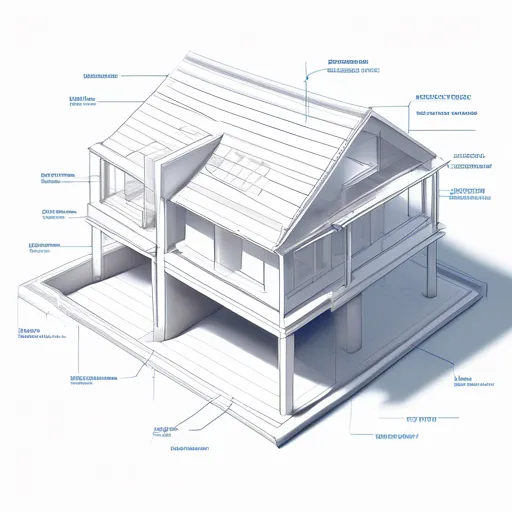The foundation of a house is much like the plot of a novel—crucial, often unseen, and capable of making or breaking the whole project. While it may not be the most glamorous topic in home construction, choosing the right foundation is essential. Whether you’re embarking on a grand architectural mission or just adding a cozy extension to your abode, understanding the intricacies of your home’s foundation can save you from a structural catastrophe.
But here lies the brick and mortar of the question: what type of foundation is right for your castle, and how do you wisely choose amidst the avalanches of choices? Let’s delve into some pivotal tips and keen recommendations that shall steer your decision in the right direction.

Key Features and First Impressions
- Durability: A foundation must stand the test of time and the wrath of elements.
- Suitability: Consideration for local climate, soil type, and environmental conditions is paramount.
- Cost-effectiveness: Balancing quality with budgetary constraints is vital.
- Accessibility: Maintenance and inspections should be feasible without complex operations.
While these may seem like overtly obvious pointers, they form the core ethos in foundation selection. Overlooking them could sentence your home project to endless repairs and unexpected expenses.

Technical Details
Design
Design plays a crucial role as it lays down the blueprint of how a foundation will manage loads and stresses. Most foundations fall under three main designs: basement, crawl space, and solid slab. The design choice often intertwines with the architectural style and intended use of the space.
Performance
Performance metrics for foundations revolve around load-bearing capacity and resistance to moisture and lateral pressure. It’s essential to align performance expectations with actual needs. For instance, a climate prone to flooding might need reinforced concrete to prevent water ingress.
Usability
Usability encompasses factors such as ease of building and adaptability for future modifications. Consider whether the foundation allows for easy access to utilities and the potential for additional spaces like a wine cellar or a safe room.

Side-by-Side Comparison
| Aspect | Basement | Slab |
|---|---|---|
| Durability | Excellent | Good |
| Ease of Use | Accessible | Limited |
| Design | Flexible | Minimal |
| Operating Costs | Higher | Lower |
Practical Tips
- Engage a structural engineer to analyze soil conditions before committing to a type.
- Consider futureproofing by anticipating additional loads from potential renovations.
- Ensure quality materials are used to yield a longer-lasting foundation.
- Incorporate elements from architectural counterparts, such as rails in the interior design, for structural harmony.
“A poorly chosen foundation can squander the most magnificent architectural plans, turning dreams into dust.”

The art of selecting the right foundation revolves around informed decisions and a sprinkling of foresight. Reflect upon factors such as local climate, soil type, and intended building use. Embrace innovations in ceiling designs and other interior enhancements which complement and enhance the foundation’s core purpose.
In the end, the cornerstone of a solid, dependable home is none other than its foundation. Approach this choice with the steady hand of a craftsman, wielding knowledge like a fine tool. As home aesthetics evolve, exploring innovative design ideas can lead to a cohesive and resilient structure that ultimately stands strong as a bastion against the capricious forces of nature.
“`html
FAQ
What factors determine the right foundation type?
The right foundation type is determined by soil conditions, climate, and load requirements. Consulting with professionals can aid in making an informed decision.
Why is choosing the right foundation important?
Choosing the right foundation ensures the structural integrity and longevity of your home. It helps prevent future issues like settling or water damage.
Are there different types of home foundations?
Yes, common types include slab-on-grade, basement, and crawl space foundations. Each has particular benefits and drawbacks depending on the environment and house design.
How can I simplify the foundation selection process?
Understanding local building codes and consulting with experts can simplify the process. Evaluating your specific needs and constraints also aids effective decision-making.
“`
